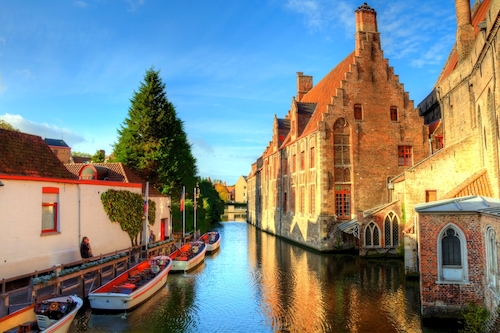If you are registered with the Belgian health insurance provider, which is run by a series of state-regulated private funds, then this will cover some of your dental fees. However, it is compulsory (as a preventative measure) to have an annual check up in order to maintain your insurance coverage. Your national insurance – which is mandatory – will not cover all of your fees for dentistry, and moreover will not cover any ophthalmic care.Dentistry in Belgium is of a high standard and the country is a centre for dental tourism, with patients seeking treatment from members of one of the four dental associations: consisting of over 8000 dentists across Belgium.
How to register with a dentist
As noted, annual check-ups are compulsory under national insurance, but you can choose your own dentist (dentiste/tandarts). Check whether your dentist is registered with a national association: two of these are Flemish speaking and two are French speaking:
• The Vlaamse Beroepsvereniging voor Tandheelkunde (VBT)
• The Verbond der Vlaamse Tandartsen (VVT)
• The Société de Médicine Dentaire (SMD)
• The Chambres Syndicales Dentaires (CSD)
All of these are also approved by the state insurance scheme.
To what extent does national insurance cover dentistry?
Some of your dental costs will be covered by your national policy, such as annual check-ups, preventive and curative dental treatment (such as consultation, oral examination, pit and fissure sealing, tartar removal, periodontics and X-rays). You can choose your own dentist, but note that almost all dentists in Belgium are private, so you must check that you are with a state registered dentist and anticipate some additional charges.

Belgian healthcare operates on a co-pay reimbursement scheme: you must pay upfront and then claim your costs back. Your insurance provider will reimburse up to 75% of those costs. You can also claim back for any dental treatment for your children up until they’re 22. For orthodontic treatment, you must submit a medical request to the medical advisor of your insurance company before your child reaches the age of15.
You will, however, need to obtain a receipt from your dentist (which you can do by asking for an ‘attestation de soins donnés’ in French or a ‘getuigschrift voor verstrekte hulp’ in Dutch).
Under the national scheme, dental fees are regulated according to the ‘Convention:’ an agreed set scale of costs. Around 2/3 of Belgian dentists are registered with the Convention, which is governed by the dental associations (they are conventionné as opposed to geconventioneerd: ‘unconventioned’).
However, expats from the UK report that dental costs are comparable to those on the NHS, without factoring in the reimbursement. This is possibly because Belgian dentists tend to work on their own, without the aid of a receptionist, and this keeps costs down. The cost will depend on which kind of treatment you are seeking.

If you want extensive treatment, such as a bridge or a crown, you should consult your insurance provider before making an appointment, in order to check how much of the costs they are likely to cover. Your dentist will then submit a schedule of treatment to the insurer, but you will still have to pay up front and then claim the costs back.
If you have private treatment, you would be looking in the region of €340 for a veneer, over €700 for a full set of dentures, and just over €400 for a crown.
How to register with an optometrist in Belgium
Belgium has a large number of optometrists, and generally, as an expat, one will only need to see one every couple of years for eye tests. However, the country also has opthamologists (oogarts or oftalmoloog / ophtalmologue), and your GP will refer you to one of these if you develop a serious eye problem. The Belgoptic website will direct you to your nearest eyecare provider and the country also has the Professional Association of Opticians and Optometrists of Belgium (APOOB).
To what extent does national insurance cover optical care?
The national health scheme will not cover you for visits to the optometrist and you will need to pay out of pocket for this. However, it will cover visits to opthamologists who are registered with the national scheme (geconventioneerde oogartsen) in the event of a serious optical problem. In an emergency, you will be covered under the national scheme anyway. There are a number of optometrists and opthamologists, particularly in Brussels, who are English-speaking.

Check with your mutuelle to see if eye wear is covered under your policy: depending on your age and the quality of your sight, glasses may be partially reimbursed by your insurance provider – but make sure you order them under a prescription. If you simply buy lenses and frames, and the provider is not signed up to national insurance, you won’t be able to claim your costs back.
If you have children, you can claim reimbursement for their lenses up to the age of 18, and some insurers may cover the frames as well.
If you take out private insurance, you can check whether your policy covers eye care and eyewear.
Would you like to share your experience of life abroad with other readers? Answer the questions here to be featured in an interview!

